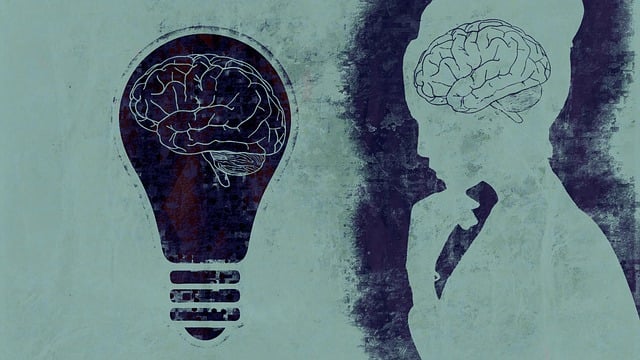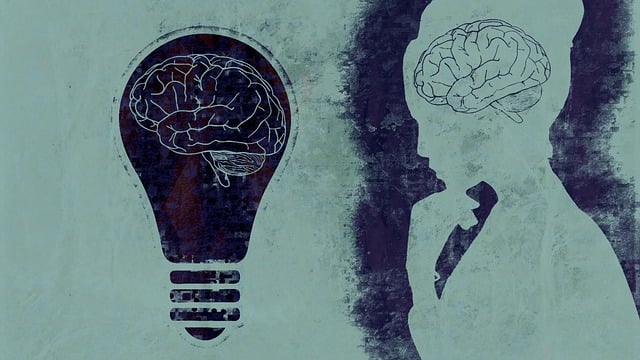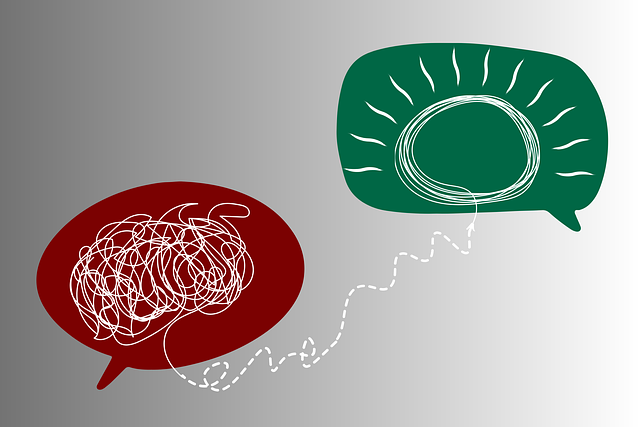Greenwood Village Interpersonal Issues Therapy emphasizes cultural sensitivity as a cornerstone of effective mental health treatment. By understanding and respecting diverse backgrounds, therapists create safe spaces that empower clients to share their struggles and improve self-esteem. This tailored approach integrates mindfulness, mood management, and personalized care, fostering trust and empathy between therapists and clients from various cultures. Through these strategies, Greenwood Village Interpersonal Issues Therapy enhances mental well-being outcomes for a diverse range of individuals while promoting culturally competent risk management.
In today’s diverse society, cultural sensitivity is a cornerstone of effective mental healthcare. Understanding the profound impact of cultural background on mental health and treatment is essential for therapists. This article explores strategies for culturally competent practice, highlighting innovative approaches like Greenwood Village Interpersonal Issues Therapy. We delve into building trust and empathy, fostering strong therapist-client relationships, and ensuring inclusive care for all.
- Understanding Cultural Sensitivity: A Cornerstone of Effective Therapy
- The Impact of Cultural Background on Mental Health and Treatment
- Greenwood Village Interpersonal Issues Therapy: Addressing Diverse Needs
- Strategies for Culturally Competent Practice in Mental Healthcare
- Fostering Trust and Empathy: Building Strong Therapist-Client Relationships
Understanding Cultural Sensitivity: A Cornerstone of Effective Therapy

Understanding Cultural Sensitivity is a cornerstone of effective therapy, especially within diverse communities like Greenwood Village Interpersonal Issues Therapy. In the context of mental healthcare, cultural sensitivity goes beyond mere awareness; it involves adapting therapeutic practices to respect and embrace clients’ unique backgrounds, beliefs, and values. This approach ensures that individuals from different ethnic, racial, religious, or socio-economic groups feel understood and accepted, fostering a safe space for them to open up about their challenges.
By integrating cultural sensitivity into therapy sessions, mental health professionals can enhance their ability to connect with clients on a deeper level. It enables them to navigate complex interpersonal issues more effectively, boost client confidence, and ultimately improve treatment outcomes. Moreover, considering the potential cultural differences in expressing emotions or seeking help, professionals can tailor their risk management planning for mental health services, ensuring a culturally competent approach that addresses the specific needs of each client.
The Impact of Cultural Background on Mental Health and Treatment

Understanding the impact of cultural background on mental health is paramount in providing effective therapy. Different cultures have unique beliefs and values that shape individuals’ perceptions of well-being and illness. For instance, concepts of mental wellness, expressing emotions, and seeking help can vary significantly across diverse communities. In Greenwood Village, where Interpersonal Issues Therapy is prevalent, recognizing these cultural nuances is essential to creating a safe and supportive therapeutic environment.
When addressing interpersonal issues, therapists must consider the cultural context to avoid misunderstandings and ensure culturally sensitive care. For example, some cultures may prioritize collective family decisions over individual preferences, impacting treatment goals and communication styles. Others might have distinct views on self-care routines, with practices like meditation or journaling serving as coping mechanisms in one culture but not another. Tailoring therapy to incorporate these cultural aspects can enhance self-esteem improvement and facilitate the development of a personalized self-care routine for better mental health.
Greenwood Village Interpersonal Issues Therapy: Addressing Diverse Needs

Greenwood Village Interpersonal Issues Therapy offers a unique approach to mental healthcare, catering to a diverse range of cultural backgrounds and individual needs. This therapy model recognizes that interpersonal relationships and social contexts play a significant role in one’s mental well-being, especially within various cultural frameworks. By addressing these aspects, therapists aim to help clients navigate complex emotional issues and foster healthier interactions.
The practice integrates techniques such as mindfulness meditation and mood management strategies tailored to each person’s journey. Through this personalized approach, individuals can develop inner strength and resilience while exploring their cultural identities. This holistic method ensures that treatment is not only effective but also culturally sensitive, allowing for profound transformations in one’s mental health and overall quality of life.
Strategies for Culturally Competent Practice in Mental Healthcare

Incorporating cultural sensitivity into mental healthcare practice is a multifaceted approach that requires a deep understanding of diverse communities and their unique needs. At Greenwood Village Interpersonal Issues Therapy, we emphasize the importance of building empathy between therapists and clients from different cultural backgrounds. Empathy-building strategies are pivotal in fostering trust and creating a safe space for open communication. Therapists should actively listen to clients’ narratives, unlearn biases, and challenge stereotypes to offer genuine support.
Furthermore, promoting self-care routine development is an essential aspect of culturally competent care. Healthcare providers must prioritize their well-being to avoid burnout, which can significantly impact the quality of service delivery. By implementing effective burnout prevention strategies, mental health professionals can maintain resilience, enhance patient outcomes, and sustain long-term practice effectiveness. These practices are vital in creating a holistic environment that caters to diverse communities, such as Greenwood Village, encouraging improved mental health outcomes for all.
Fostering Trust and Empathy: Building Strong Therapist-Client Relationships

Building strong, therapeutic relationships is a cornerstone of effective mental healthcare, and cultural sensitivity plays a pivotal role in achieving this. At Greenwood Village Interpersonal Issues Therapy, we emphasize understanding our clients’ unique backgrounds, experiences, and perspectives as essential to fostering trust and empathy. By creating a safe and supportive environment where every individual feels heard and respected, therapists can form deep connections that are crucial for addressing interpersonal issues.
Cultural sensitivity allows therapists to adapt their practices to meet the specific needs of diverse clients. This might involve incorporating elements of mindfulness meditation or other culturally relevant techniques to enhance mood management and overall well-being. Such tailored approaches not only strengthen the therapist-client relationship but also ensure that care is delivered in a way that resonates with each individual’s cultural identity, ultimately promoting positive outcomes.
Incorporating cultural sensitivity into mental healthcare practice, as demonstrated by the innovative approaches at Greenwood Village Interpersonal Issues Therapy, is not just a moral imperative but a proven strategy for enhancing therapeutic outcomes. By recognizing and respecting the impact of cultural background on mental health and treatment, therapists can build stronger relationships based on trust and empathy. Implementing culturally competent strategies enables professionals to provide more personalized and effective care, fostering a supportive environment that meets the unique needs of diverse clients. This holistic approach ensures that everyone has access to quality mental healthcare that respects their cultural identity and promotes positive healing.









